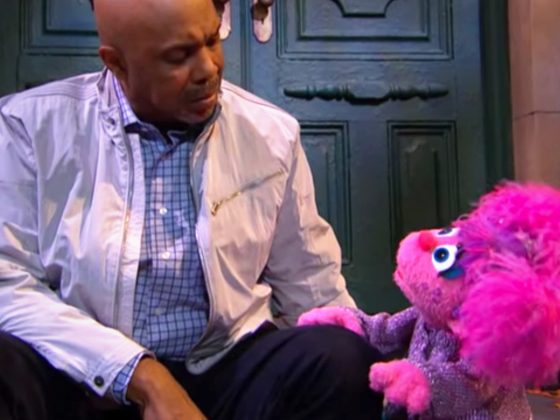
Reminding Kids It’s Not Their Fault
Reassure children, just like Abby, that a divorce is never their fault.
Together, watch Gordon and Abby’s conversation. Ask, “How was Abby feeling?” and “What did Gordon try to tell Abby?” Reassure kids that they haven’t done anything to cause the divorce. Tell them it’s okay to have these worries and feelings, but that talking about them with you can help. Keep having these conversations over time to keep communication open, explaining that problems between grown-ups are not children’s fault, and adult problems are not children’s jobs to fix. You might also:
- Leave notes in a lunchbox or throughout the house describing things you love about them.
- Give compliments (“You are so good at sharing your toys with your little brother.”).
- Share reasons—big and small—that you’re proud of them.
- Thank them for helping out, for being kind, or for just being themselves!
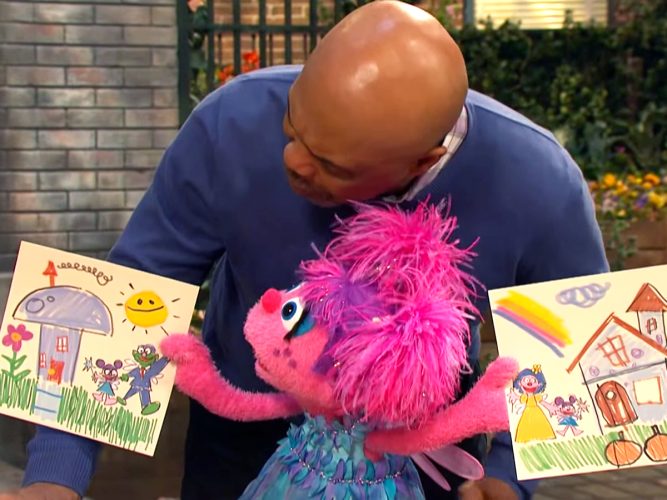
Adjusting to Two Homes
Use this video to show children that many other kids have two homes.
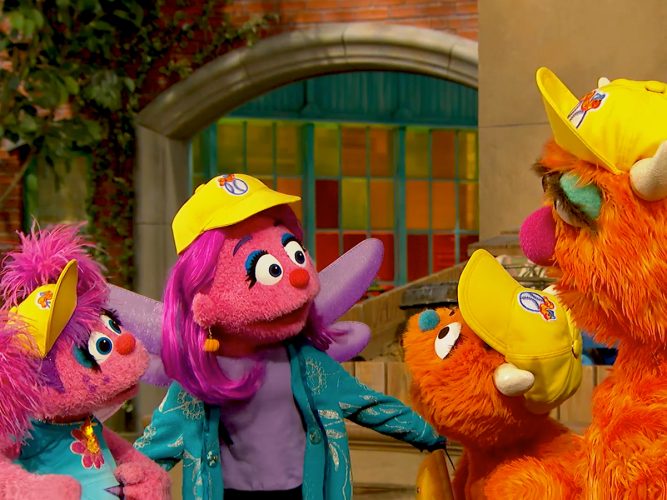
A Monster-Fairy Problem
A video about the challenges and joys of a blended Muppet family.
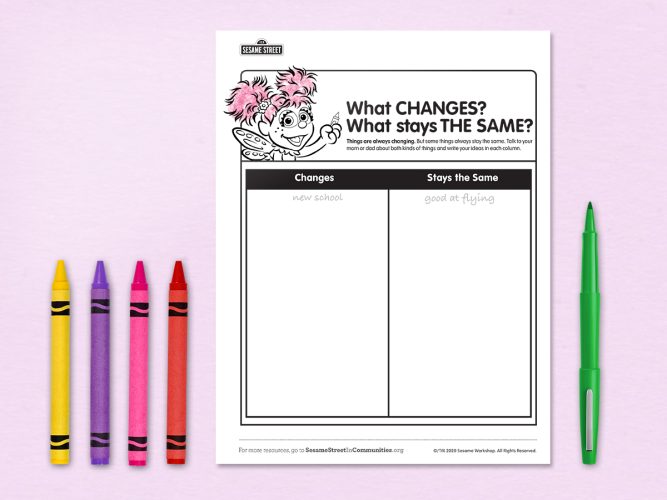
What Changes? What Stays the Same?
Big changes can be scary for everyone, but there are things you can do to help.

Co-parenting Conversations
Simple conversation starters to develop your parenting partnership.
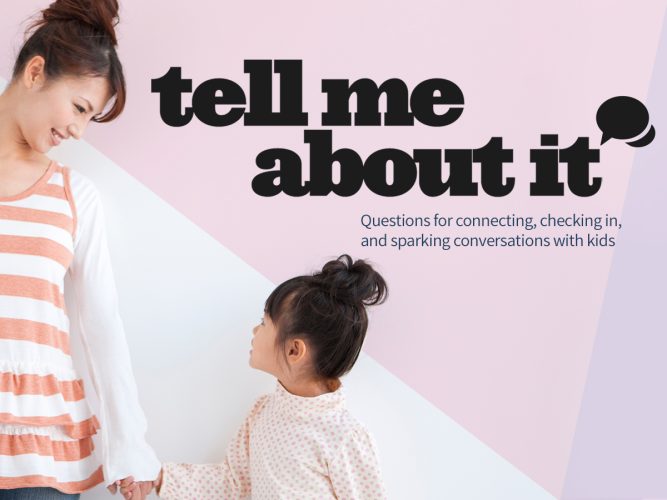
Tell Me About It
Asking children questions and listening to their answers lets you know what’s on their minds.

Taking Care of Yourself
A few ideas to help grown-ups take care of themselves during a divorce, too.

Dealing With Divorce
An overview of strategies adults can use to help kids understand divorce and adjust to the changes it brings.
